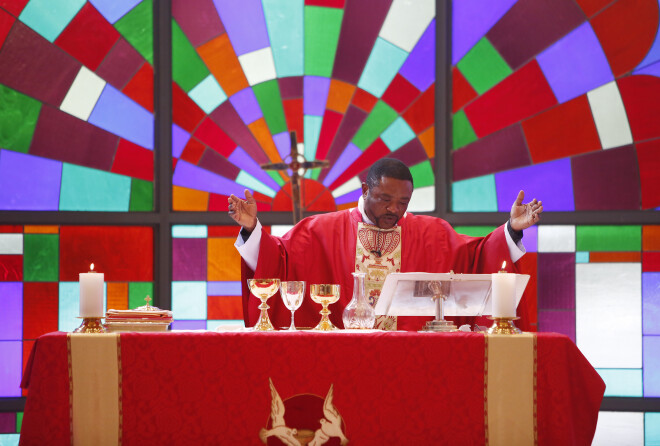Genesis 1

We hear the Bible as God’s Word in individual passages, in books, and as a whole in concert. The important thing is to listen to the Bible itself, though there is a place for underlining key themes and concepts that help us hear the Scriptures better. In the following few entries we will focus on select passages from the Old Testament for this purpose, a myriad of other passages could equally have been selected.
The first chapter of Genesis, and of the Bible as a whole, is a polestar for all that follows. My peoples of the earth have ‘creation stories’ that proceed to tell where their tribe came from; such stories describe a timeless realm from which they come. But Genesis 1 is different. God already exists when the story of all creation begins. His act is free and sovereign; He speaks His word and all comes immediately and effortlessly into being! There is no second principle in addition to God - there is only His Word that calls the world out of nothing. The world is distinct from Him, yet it shows the order and beauty bestowed by Him (‘and it is good’).
The humans are part of His created order. But they are special in several ways. He makes us ‘in His image,’ that is, having community, language, responsibility, fecundity, but under Him. And His creation has a goal, Sabbath, that rest in which the human and God enjoy one another.
The relationship between the human being and God described here will undergird all that follows, and in spite of sin, which is quickly on its way, is never erased fully, though it is obscured and impaired.
A useful exercise: what is Genesis 1 notsaying?
- That God and the world, or good and evil, are comparable factors, or that God used a pre-existing world to create.
- That, as a result, God is part of creation or of history (as opposed to their creators).
- That the world has no structure, and can be molded as humans wish, or that there is not a given goal to it all.
- That God ‘had’ to create in any way.
- That the human as ‘in the image’ is part of God.
- That the Word is anything other than God Himself speaking and acting.
Play the hymn: All People that on Earth do Dwell



